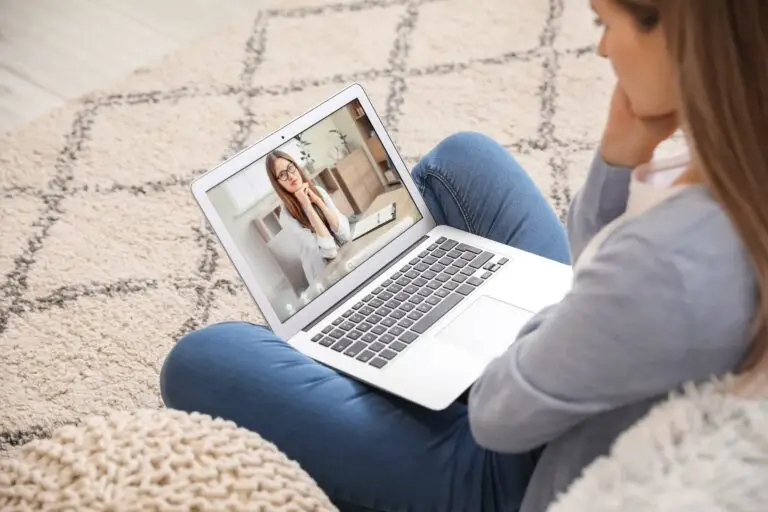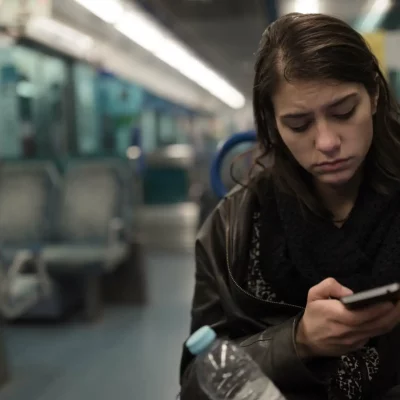Feeling drained from doom scrolling and seeing the perfect lives influencers show you on social media?
It might be time to unfollow social media influencers to improve your mental health.
Have you ever found yourself scrolling through Instagram, feeling worse with every swipe? You’re not alone. Social media influencers often portray a perfect life—flawless bodies, glamorous lifestyles, and endless productivity.
While it might seem harmless to follow these accounts, the truth is that constantly comparing yourself to these unrealistic standards can take a severe toll on your mental health. If you’ve been feeling stressed, anxious, or inadequate after scrolling social media, it might be time to unfollow social media influencers contributing to these feelings. This simple step could be life-changing for you.
In this guide, we’ll explore why unfollowing social media influencers can improve your mental health, how to recognize if social media is harming your mental health, and practical steps to create a healthier relationship with social media.
The five reasons you should unfollow social media influencers
Social media has a way of sneaking into your life and affecting your mood, often without you even realizing it. To know why you should unfollow social media influencers, look at the following symptoms. If you suffer from any of these five symptoms, it is imperative to lessen your consumption of those influencers’ feeds:
- Constant comparison: Do you find yourself constantly comparing your life, appearance, or success to those of influencers? This comparison can lead to feelings of low self-esteem.
- Feelings of inadequacy: After scrolling through social media, do you often feel like you’re not good enough or falling behind?
- Increased anxiety or stress: Does spending time on social media leave you feeling anxious, stressed, or overwhelmed?
- Difficulty focusing: Are you finding it hard to concentrate on tasks because your mind is preoccupied with what you’ve seen online?
- Disrupted sleep: Is your sleep suffering because you’re staying up late scrolling through Instagram or feeling stressed about what you’ve seen?
If any of these resonate with you, it’s worth considering how your social media habits—particularly following influencers—might affect your mental health.

The problem with social media influencers: Unrealistic expectations and the pressure to be perfect
Social media influencers often portray an idealized version of life that’s far from reality. They post carefully curated content that highlights their best moments, leaving out the challenges and imperfections that everyone experiences. This creates unrealistic expectations for what your life, body, and career should look like.
Unrealistic lifestyle and appearance standards
Influencers often showcase their seemingly perfect lives, which can make you feel like you’re not measuring up. Whether it’s luxury vacations, designer clothes, or flawless skin, it’s easy to forget that these images are often heavily edited, filtered, and staged. The pressure to look a certain way or live a particular lifestyle can lead to issues like:
- Body image concerns: Seeing images of perfectly toned bodies can make you feel insecure about your appearance, potentially leading to body dysmorphia or disordered eating.
- Financial stress: Trying to keep up with the expensive lifestyle of influencers can lead to unnecessary spending and financial strain.
Hustle culture and the myth of endless productivity
Another common theme among social media influencers is the glorification of hustle culture. You’ve probably seen posts that celebrate working nonstop, sacrificing rest, and always being productive. While it’s essential to be motivated, this constant pressure to do more can be detrimental to your mental health.
- Burnout: The pressure to always be productive can lead to burnout, leaving you physically and mentally exhausted.
- Anxiety: The fear of not doing enough can create a constant state of anxiety, making it hard to relax or enjoy downtime.
How unfollowing social media influencers can help
Here’s how finally unfollowing unrealistic social media influencers can help you improve your mental health:
Reclaim your self-esteem and self-worth
When you stop comparing yourself to the curated lives of influencers, you can begin to appreciate your unique journey. Unfollowing these accounts allows you to focus on your strengths, achievements, and what truly makes you happy.
Reduce stress and anxiety
Without the constant bombardment of edited images and marketing messaging that make you feel inadequate, your stress and anxiety levels are likely to decrease. You’ll no longer feel the pressure to live up to someone else’s standards, allowing you to set your own pace and goals.
Improve focus and productivity
By cutting out the distractions of social media influencers, you can regain focus on what matters to you. Whether it’s your career, hobbies, or relationships, you’ll have more mental space to dedicate to the things that bring you joy and fulfillment.
Having a balance between utilizing social media in a healthy way and focusing on what you need to get done in a day can help ensure you enjoy social media and reach your personal goals.
Create a healthier relationship with social media
Unfollowing influencers doesn’t mean you have to quit social media altogether. Instead, it’s about curating a feed that inspires and uplifts you. Follow accounts that make you feel good about yourself, whether they’re focused on mental health, body positivity, or hobbies you love.

Practical steps to create a healthy relationship with social media
If you’re ready to unfollow social media influencers and take control of your mental health, here’s how you can do it:
1. Audit your feed
Take a close look at the accounts you follow. Ask yourself how each one makes you feel. If any accounts consistently leave you feeling worse about yourself, it’s time to hit the unfollow button.
If you know you like a particular creator and feel that now is not the time to follow them for personal reasons, hit unfollow – for now. You can always follow them when your mental health has improved.
2. Follow uplifting and positive accounts
Replace the influencers you unfollow with accounts that bring you joy, inspiration, or valuable information. Look for content that aligns with your values and interests.
3. Set boundaries for social media use
Limit the time you spend on social media each day. Consider setting specific times when you check your accounts and stick to them. This can help you avoid mindless scrolling and keep your usage in check.
4. Pay attention to your emotional responses
Be aware of how social media affects your mood. If you notice yourself feeling anxious or stressed after using social media, take a break and engage in activities that help you relax and recharge.
5. Seek support if needed
If you’re struggling to create a healthy relationship with social media, consider seeking support from an online mental health professional. Online therapy with Makin Wellness can provide you with the tools and guidance you need to navigate these challenges, manage your feelings, and improve your mental health.

What treatment options are available?
If social media is contributing to or exacerbating mental health issues like anxiety, depression, or ADHD, it’s essential to know that help is available. Here are some treatment options to consider:
Cognitive behavioral therapy (CBT)
CBT is a highly effective form of therapy that can help you change harmful thought patterns and behaviors. It’s beneficial for addressing issues like anxiety and depression that may be triggered by social media use.
Mindfulness-based therapy
Mindfulness-based therapy focuses on helping you stay present and aware of your thoughts and feelings without judgment. This can be especially helpful in reducing the impact of social media on your mental health.
Online therapy with Makin Wellness
Makin Wellness offers convenient and accessible online therapy services that can help you improve your mental health. Whether you’re struggling with anxiety, depression, or ADHD, our therapists can help you develop a healthier relationship with social media and guide you on your journey to self-love and acceptance.
Conclusion: Embrace a healthier relationship with social media
Unfollowing social media influencers is a powerful step toward taking control of your mental health. By reducing your exposure to unrealistic expectations and the pressure to be perfect, you can begin to focus on what truly matters—your mental health and happiness.
Remember, your feelings are valid, and you have the power to make positive changes in your life. If you need support and guidance while you navigate your feelings and symptoms, Makin Wellness is here to help. Our online therapy services can provide you with the guidance and tools you need to improve your mental health and create a healthier relationship with social media.
To take control of your social media consumption and its associated symptoms, call us at (833)-274-heal or make an appointment with a specialized online therapist today. Unfollow the influencers that are affecting your life, reclaim your mental health, and start living the life that makes you happy.







